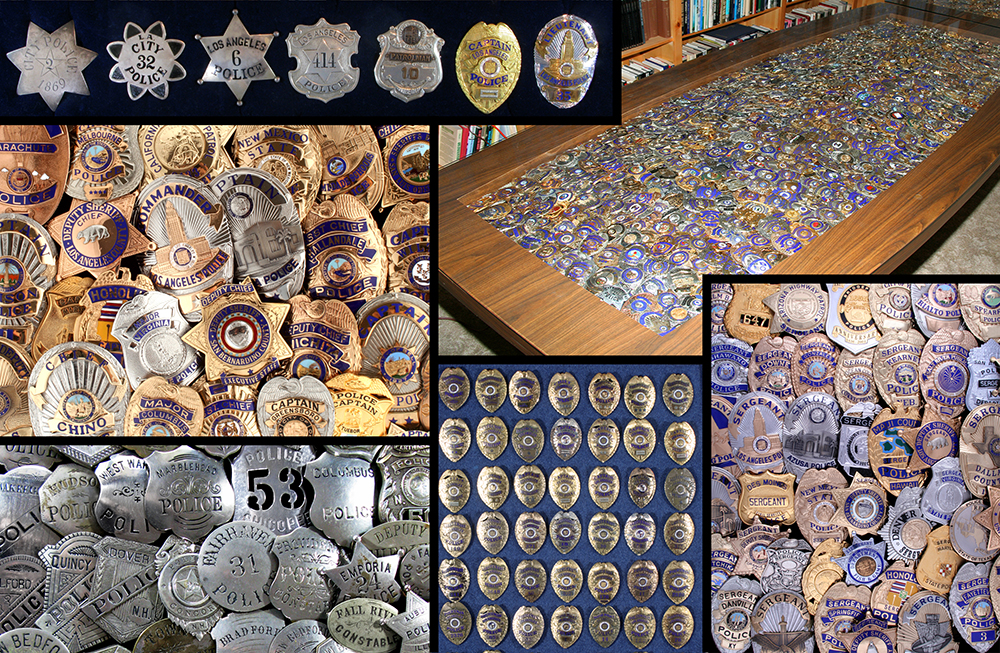Leadership Message

My long-term passion for the art and science of leadership goes back to my early days in the Marine Corps. A painful experience as a private first class has stayed with me all of these years. As one of several young lower enlisted men who were treated very poorly and unnecessarily by an ego-driven mental midget, who knew or cared nothing about leadership, I asked myself the question –- and have asked this same question many times in the years since –- why higher ranking personnel often allow subordinate supervisors and managers to behave so foolishly? I encourage those who visit this website to take a few moments and review The Often Unconsidered Consequences of Toxic Leadership, as a reminder of just how poor leadership can be devastating not only within our departments, but actually beyond our organizations in terms of also decreasing the quality of life for our personnel and their families.
As I climbed the promotional ladder in both the Marine Corps (Regular and Reserve) and in the six law enforcement agencies where I have served, I have paid close attention to the behavior of others, good and bad, as well as my own achievements and failures. Frankly, I learned a great deal more from my mistakes (and there were plenty of them!) and those of others, than from successes and achievements. While I take no pleasure in saying it, I must be candid in acknowledging that I was weak, at least initially, in many of the ranks and positions that I held throughout my career. I think my greatest strength was (and hopefully still is) my candor in acknowledging my weaknesses and my determination to overcome these deficiencies and to share with others those things that I have learned.
Anyone can be a supervisor or manager, but leadership is something entirely different. There are many definitions of leadership, but in it’s simplest form is when the men and women who work for someone have genuine respect and confidence in that person, whether or not they agree with all of the actions of that person. While there are some people who seem to have an internal makeup that lends itself to leadership, it must be recognized that leaders are made and not born. Contrary to the belief of some, leadership is much more than liking people and having good intentions; a constant commitment to self-improvement and the pursuit of additional leadership skills and knowledge is essential.
Let there be no doubt, none whatsoever, that the leadership skills of those in charge are the most powerful factors in creating and maintaining a workplace that is positive and productive, and where employees feel good about themselves, their co-workers, the organization, and the profession. This is especially applicable for the head of the agency, as he or she not only performs personally, but also sets the tone and expectations –- as well as providing coaching and providing mentoring — for subordinate supervisors and managers.
Several years ago the International Association of Chiefs of Police opined that ethics was the number one issue facing American policing. I must respectfully disagree. In having made virtually hundreds of presentations throughout the Country, it has become obvious to me that the real key issue is a serious deficit of leadership skills at the highest levels of far too many law enforcement agencies. Certainly ethics is extremely important, but it is an element of the bigger issue of overall leadership. The overwhelming percentage of our chiefs and sheriffs are truly wonderful and dedicated men and women, but often – without realizing or acknowledging it – are in dire need of enhanced leadership skills. Addressing this reality, and helping chiefs and sheriffs realize that they need continuing and intensive leadership training, is among my passions.

All of the booklets in my leadership series are available in their entirety, and at no cost, from this website (just click on the cover-image). These booklets are the product of extensive efforts over the years, and may be reproduced without permission (however, attribution is appreciated). The materials reflect not only my experiences, but also the experiences and perspectives of a number of my closest friends and colleagues as well. In developing these booklets, all of us were brutality honest with ourselves and each other not only about those actions and behaviors that worked well, but equally as important the mistakes that we made and the hard lessons we learned about some of our failings and missteps in both the supervisory and command positions that we held. These booklets, and the many articles and manuscripts that are also available on my website, are intended to help new generations of leaders as they take their places in today and tomorrow’s law enforcement agencies.
A final thought. A little piece of this universe belongs to every person who has subordinates. We know that our employees take their problems home with them, and that when our folks are unhappy it affects their families as well. We all wish this was not the case, but it is among the human realities. In each supervisor and manager’s universe are not only the employee, but the spouse and children as well; all people who is a very real sense that are impacted by the behaviors and actions, both positive and negative, of that single supervisor. Our profession is such that there are more than enough legitimate challenges for our employees to worry about, without also creating additional unnecessary workplace trauma because of the weak leadership skills of those in charge!
